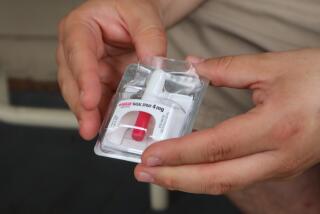Expanded Bottle Deposit Needed
Grocery manufacturers, especially the makers of fruit juices and sports drinks, are mounting a high-profile media and lobbying drive to get Gov. Gray Davis to veto legislation that would overhaul and expand California’s recycling law. They already have achieved one goal, a meeting with the governor, who is a progressive on many issues but who promises to be a friend of California business. A Davis aide said the governor has taken no position on the bottle bill.
This is not a simple issue of business versus the environment. Retailers and glass manufacturers are among supporters of the measure, SB 332, by Sen. Byron Sher (D-Stanford). California needs a new redemption program, and SB 332 is as good as the Legislature is likely to produce, considering the competing interests in this matter. The Assembly, which along with the Senate returns today from a summer recess, should pass the measure promptly, and the governor should sign it into law. Otherwise, California’s current program, extended temporarily in the absence of a reform bill last year, could expire and leave the state with nothing.
The present law is not ideal, offering rebates of 2.5 cents at recycling centers--but not grocery stores--for most bottles and cans and a nickel for larger containers. The proceeds are used to support recycling and cleanup programs. As flawed as it may be, the program has accounted for the return of an estimated 100 billion containers since it passed in 1986.
The proposed law would extend the deposit to drinks that have been developed or have grown in popularity since 1986, including iced teas, several sports drinks, juices and bottled water. The deposit on 20-ounce containers would be doubled from 2.5 cents to five cents.
The grocery manufacturers say the deposit amounts to a tax on foodstuffs and would discourage consumers from buying their products. That’s not likely to happen. The deposit now applies to soft drinks such as Coca-Cola and Pepsi, which remain best sellers.
If the grocery manufacturers really wanted an effective bottle law, they would support nickel deposits on all drink containers and a requirement that supermarkets redeem them at check stands. This is what Oregon, Vermont and other bottle-law states do. California has a less effective, complex system only because the grocers refused to handle the empties at the store. Although the Sher bill does not provide remedies in those areas, it represents an advance and should not be rejected by the governor.
More to Read
Get the L.A. Times Politics newsletter
Deeply reported insights into legislation, politics and policy from Sacramento, Washington and beyond. In your inbox three times per week.
You may occasionally receive promotional content from the Los Angeles Times.










